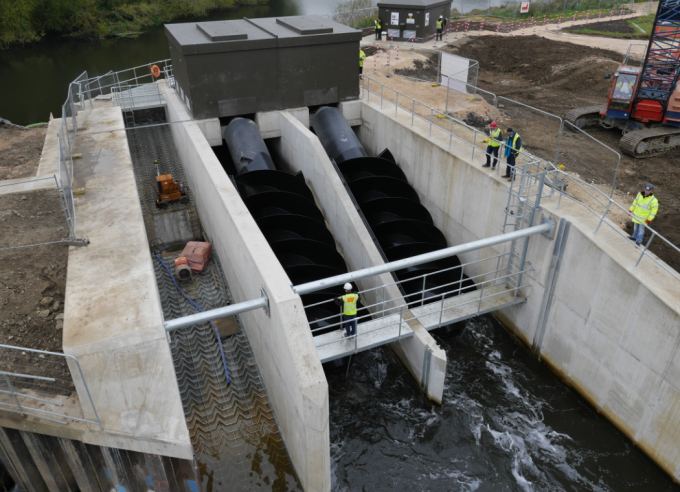John Laing Environmental Assets Group (JLEN) has announced that it has acquired Yorkshire Hydropower Holdings Limited (YHH”) for a total consideration, including working capital, of £4.3 million. YHHL is an entity that owns 100% of the equity in Yorkshire Hydropower Limited (YHL), which in turn holds the rights to two operational hydro projects and an operational battery storage system.
YHHL has been acquired from a group of high-net-worth investors, which provided the original funding under the Enterprise Investment Scheme. This acquisition increases the total capacity of renewable energy assets in the JLEN investment portfolio to 281.16MW. The acquisition was funded by the group’s internal cash resources.
Purchase represents first investment into two new sectors
This purchase takes the company into new sectors – run-of-river hydro and battery storage, further diversifying the Company’s portfolio of environmental infrastructure projects including, wind, solar, anaerobic digestion, waste and wastewater.
Three Yorkshire based projects
The Yorkshire-based projects acquired, are:
- Kirkthorpe hydro, a 500kW single turbine hydro project located on the River Calder, which was commissioned on 21 November 2016
- Thrybergh hydro, a twin screw 260kW hydro project located on the River Don, commissioned 26 October 2015 (pictured); and
- a 1.2MW battery co-located at Thrybergh, commissioned in January 2018.
Both hydro projects are accredited under the 20-year Feed-in-Tariff scheme. The battery storage project at Thrybergh is currently dedicated to a Firm Frequency Response contract.
Comments from Richard Morse, Chairman of JLEN
“We are pleased to make our first investment into two new asset classes in run-of-river hydro and battery storage. These projects have a proven operational history, benefit from strong contractual revenues and broaden the diversification within the JLEN portfolio. Furthermore, they demonstrate the synergistic benefits of co-locating renewable energy generation and storage technology.”
About John Laing Environmental Assets
John Laing Environmental Assets aims to provide its shareholders with a sustainable dividend, paid quarterly, that increases progressively in line with inflation, and to preserve the capital value of its portfolio on a real basis over the long term.
The company in invests in environmental infrastructure assets with predictable, wholly or partially index-linked cash flows supported by long-term contracts or stable regulatory frameworks. Environmental infrastructure comprises projects that utilise natural or waste resources or support more environmentally-friendly approaches to economic activity. This could involve the generation of renewable energy (including solar, wind, hydropower and biomass technologies), the supply and treatment of water, the treatment and processing of waste, and projects that promote energy efficiency.
